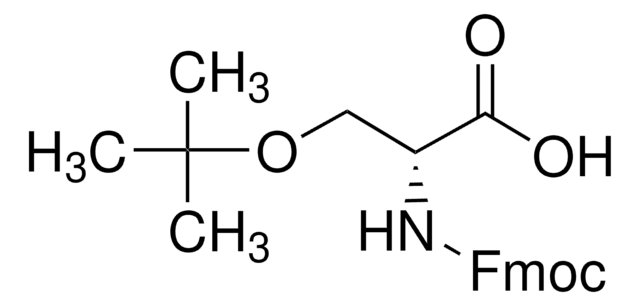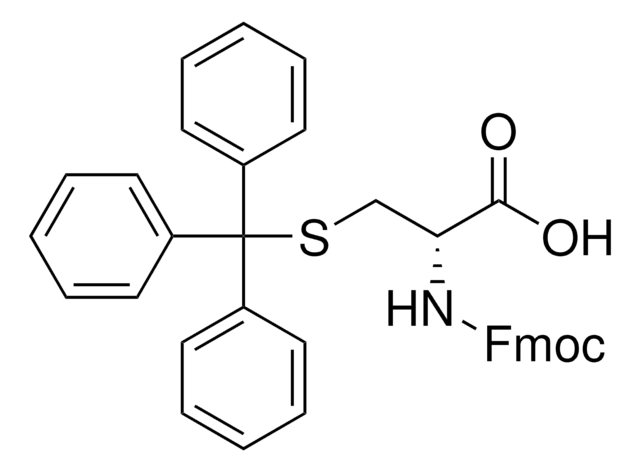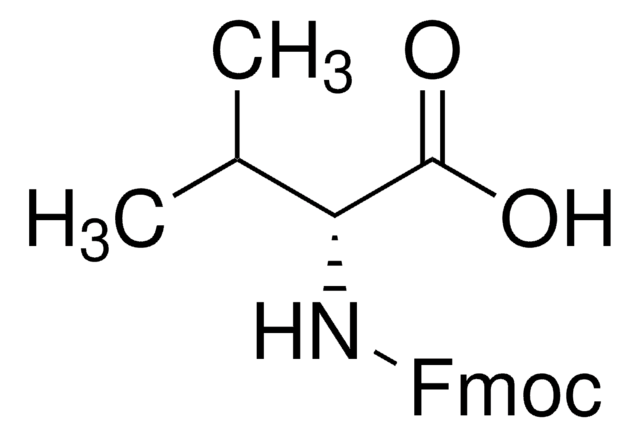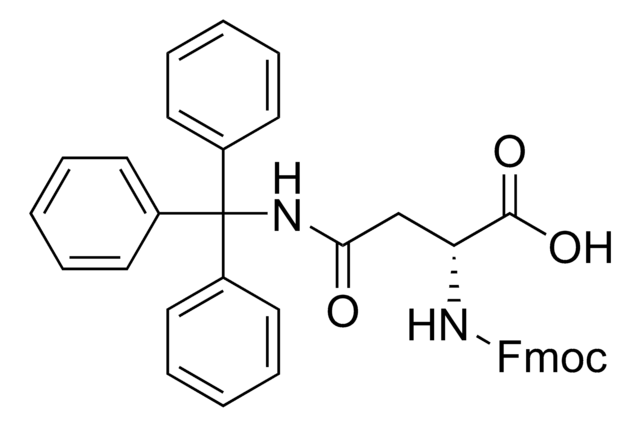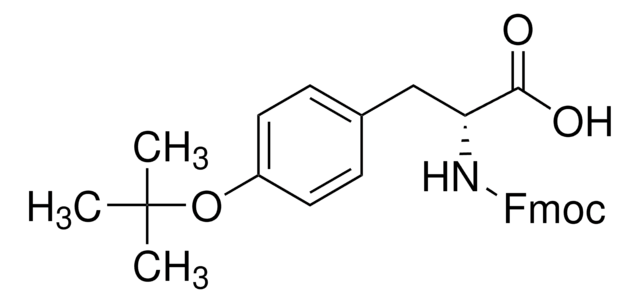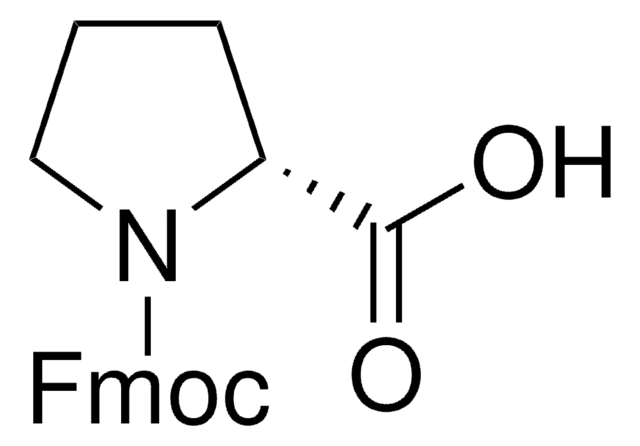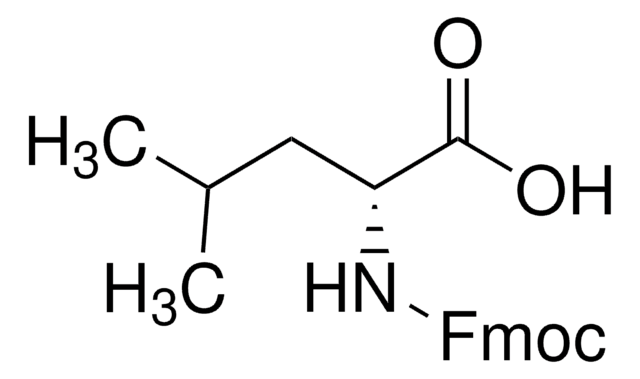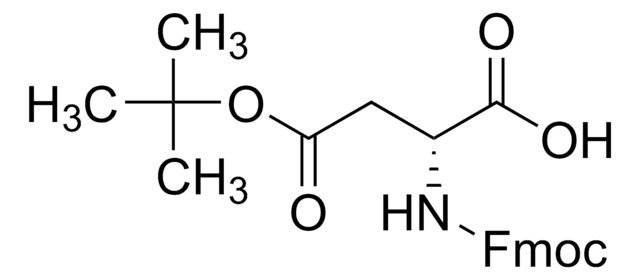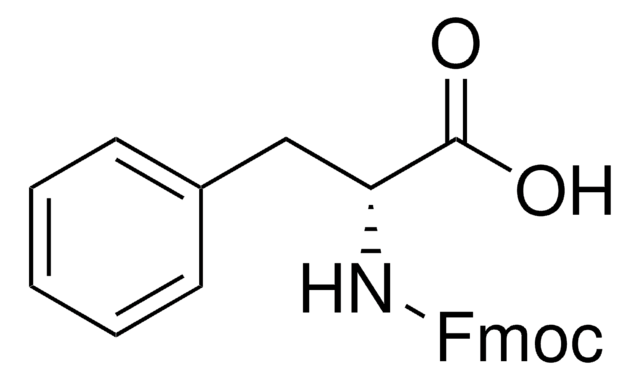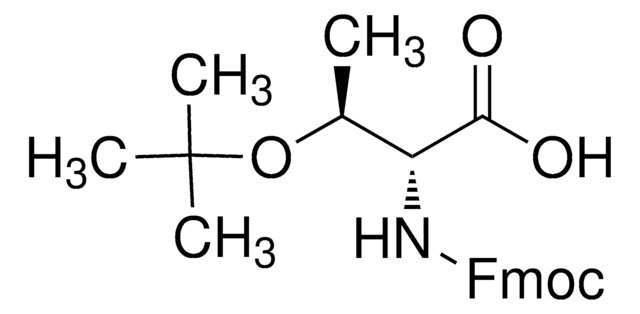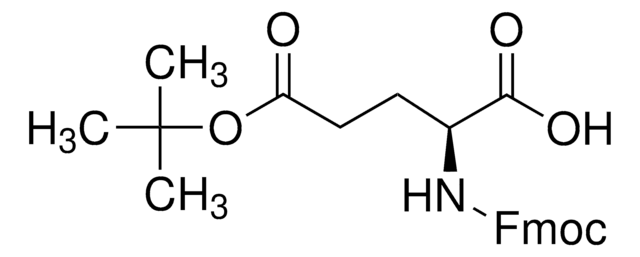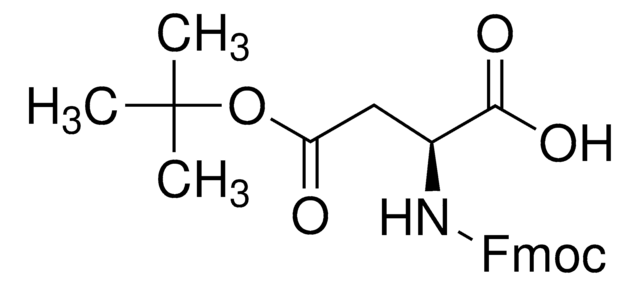772038
Fmoc-D-Gln(Trt)-OH
97%
Synonym(s):
Fmoc-N-trityl-D-glutamine
About This Item
Recommended Products
Assay
97%
form
powder or crystals
optical activity
[α]22/D +13.4°, c = 1% in DMF
reaction suitability
reaction type: Fmoc solid-phase peptide synthesis
mp
232-237 °C
application(s)
peptide synthesis
functional group
Fmoc
storage temp.
2-8°C
SMILES string
OC(=O)[C@@H](CCC(=O)NC(c1ccccc1)(c2ccccc2)c3ccccc3)NC(=O)OCC4c5ccccc5-c6ccccc46
InChI
1S/C39H34N2O5/c42-36(41-39(27-14-4-1-5-15-27,28-16-6-2-7-17-28)29-18-8-3-9-19-29)25-24-35(37(43)44)40-38(45)46-26-34-32-22-12-10-20-30(32)31-21-11-13-23-33(31)34/h1-23,34-35H,24-26H2,(H,40,45)(H,41,42)(H,43,44)/t35-/m1/s1
InChI key
WDGICUODAOGOMO-PGUFJCEWSA-N
related product
Storage Class Code
11 - Combustible Solids
WGK
WGK 3
Flash Point(F)
Not applicable
Flash Point(C)
Not applicable
Choose from one of the most recent versions:
Certificates of Analysis (COA)
Don't see the Right Version?
If you require a particular version, you can look up a specific certificate by the Lot or Batch number.
Already Own This Product?
Find documentation for the products that you have recently purchased in the Document Library.
Customers Also Viewed
Our team of scientists has experience in all areas of research including Life Science, Material Science, Chemical Synthesis, Chromatography, Analytical and many others.
Contact Technical Service